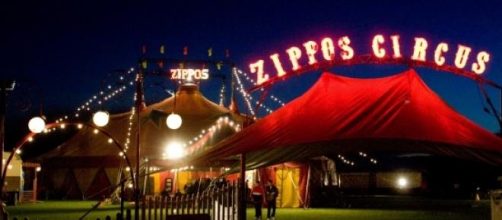When I began writing my book Circus Mania, circus was something of a dirty word. Many new and progressive companies incorporated the word 'cirque' in their names, partly to jump on the coattails of Cirque du Soleil, but also to distance themselves from the image of traditional circus with its tents, animal rights protesters and clowns with big shoes. Cirque was becoming a generic term for contemporary, theatre-based circus.
More recently, the word circus has become trendy among contemporary companies and cirque is seldom mentioned. But the division between old and new circus remains as bitter as ever.
Charlie Wood, a director of the Circus Hub at this year's Edinburgh Fringe said in the Guardian, "We've tried to get away from the old understanding of what circus is - nasty big tops and animals and hack clowns and so on." In an article on circus animals in Holyrood Magazine, meanwhile, Martin Danziger of social circus company Modo, said: "Important as it is to stop wild animal use for moral reasons, its very existence also makes our work harder - we have to work harder to communicate the difference between two things that call themselves circuses, and to work to counter negative perceptions."
Mr Danziger hit the nail on the head when he says we currently have two different forms of entertainment that both call themselves circus. On one hand we have, well... circuses, such as Zippos. A big show in a tent, with a circular ring and a variety of different acts, including horses and dogs, must fit within anyone's definition of a circus. But we also have small cast theatrical shows such as Bromance by the Barely Methodical Troupe and What Will Have Been by the Australian company Circa which may be built around circus skills and billed as 'circus,' but I doubt if even they would describe themselves as 'circuses.'
Yaron Lifschitz, director of Circa, talked to me disparagingly of traditional circus as "the thing in a tent that goes around. It's kind of the weird spiritual home of some of the languages we use. But increasingly we draw from things like sports acrobatics and contemporary dance."
So if traditional and contemporary circus are two such different things, and the image of traditional circuses is such a problem for the new companies, why don't they simply stop calling themselves circus and come up with a new name that more accurately describes what they do? After all, if clowns are taken out of a circus context and presented in isolation on a stage or in the street, their act isn't called circus, but clowning. So why should other skills such as acro-balance or aerial acts, when presented in a theatrical setting, be called circus?
My suggestion would be to call the new forms 'gymnastic theatre,' and leave circus to actual circuses.
© ALL RIGHTS RESERVED

